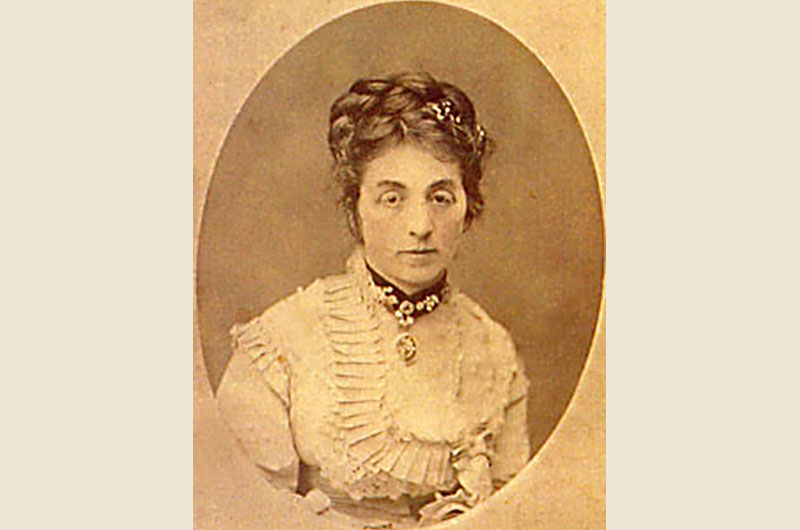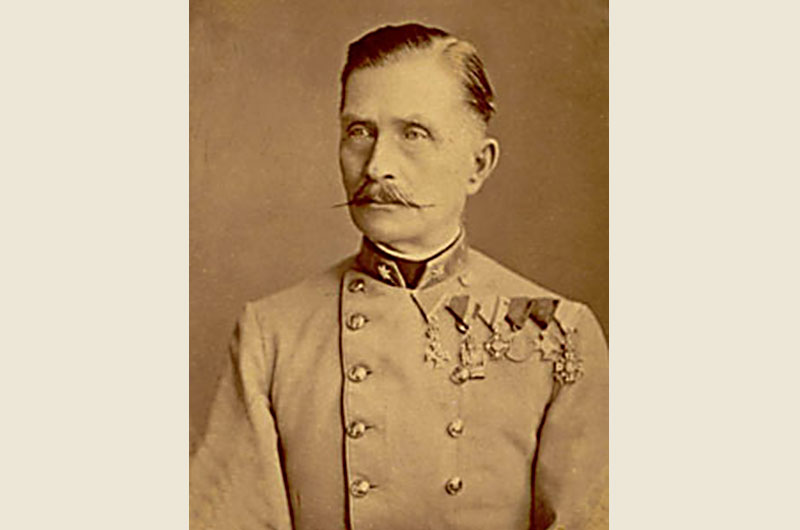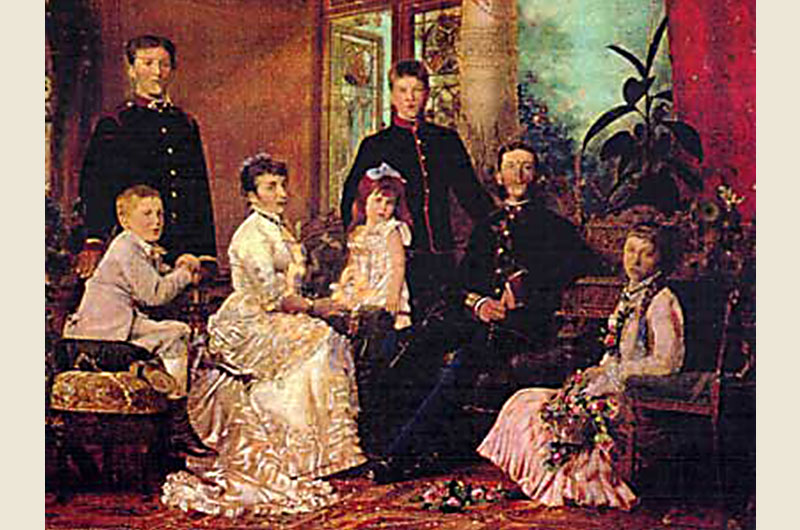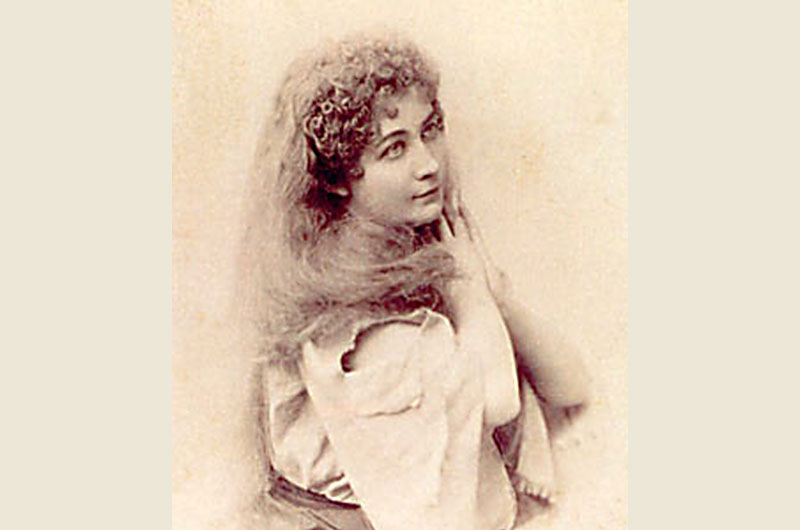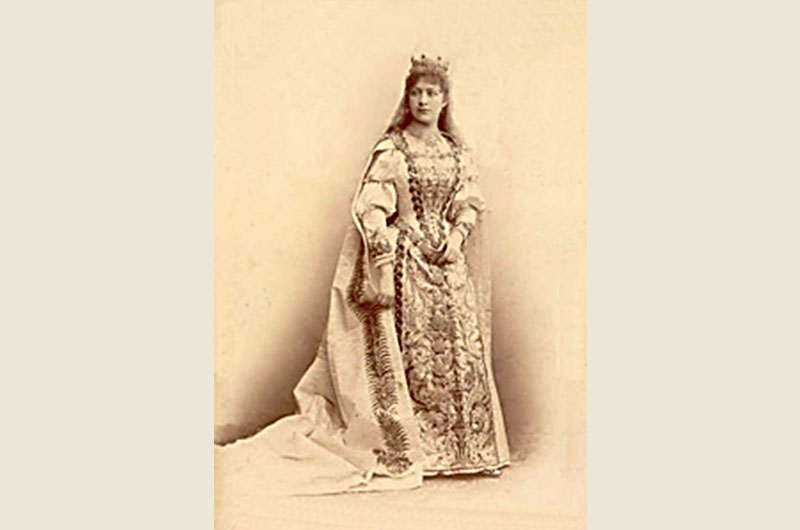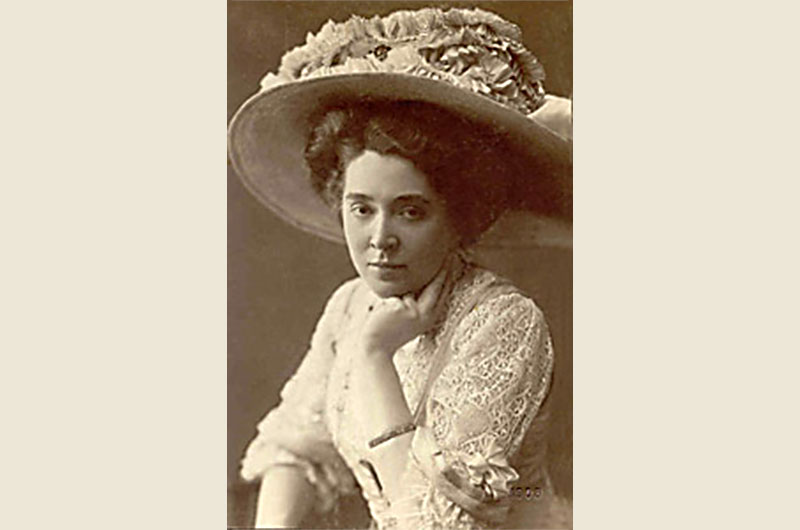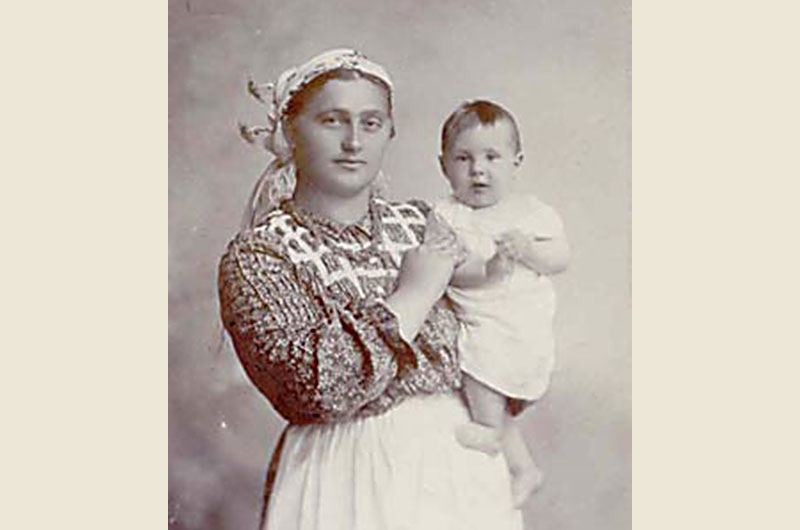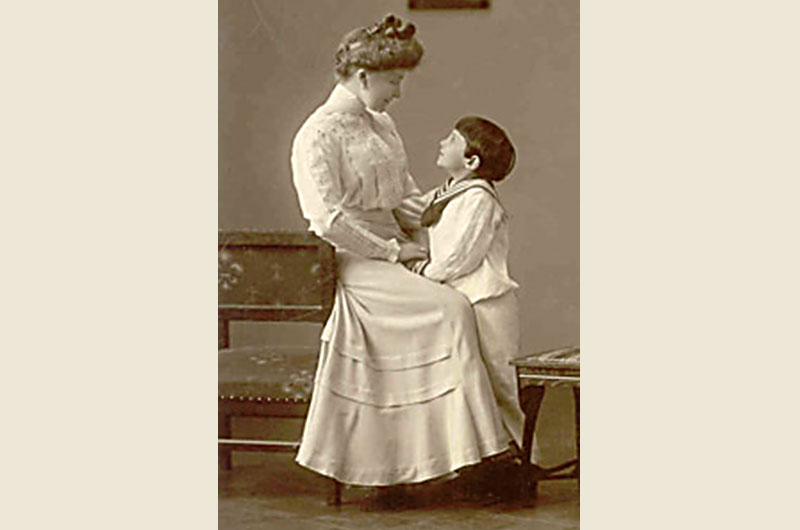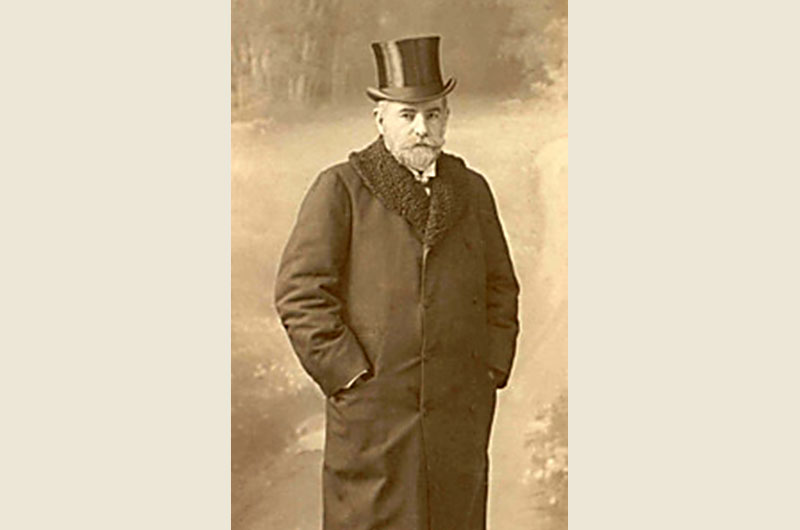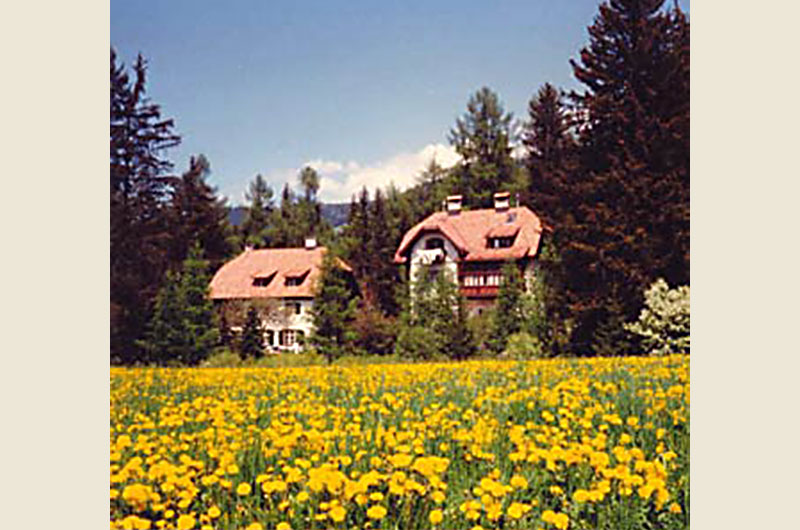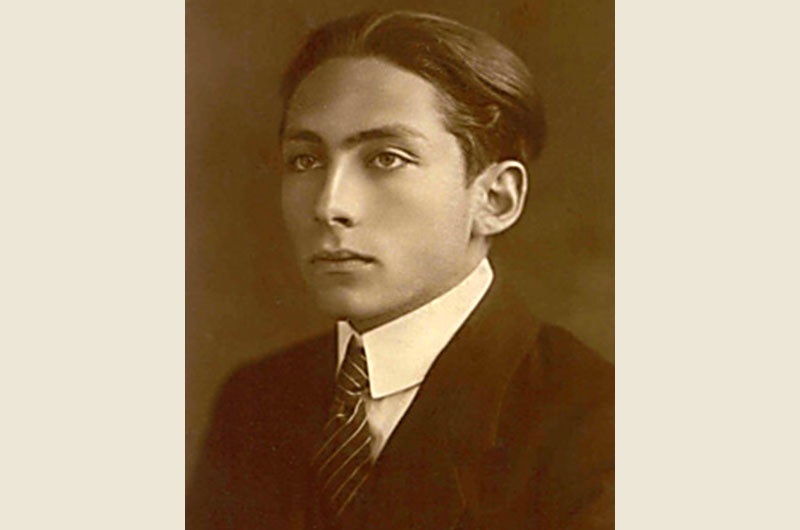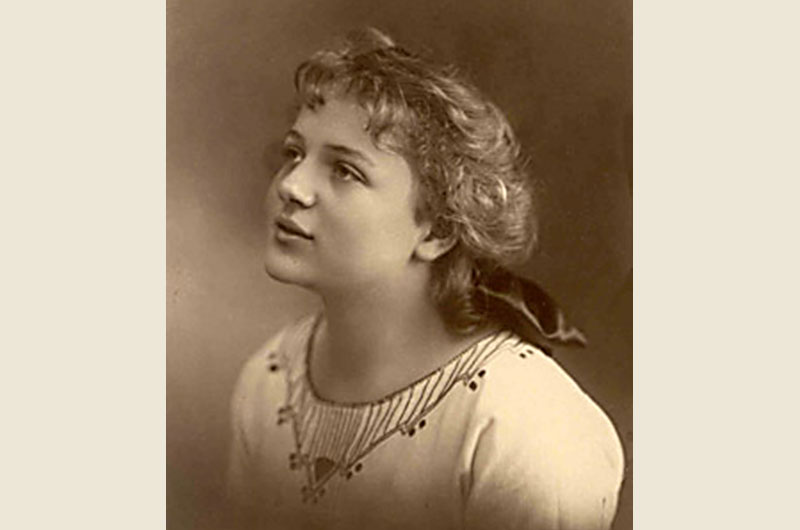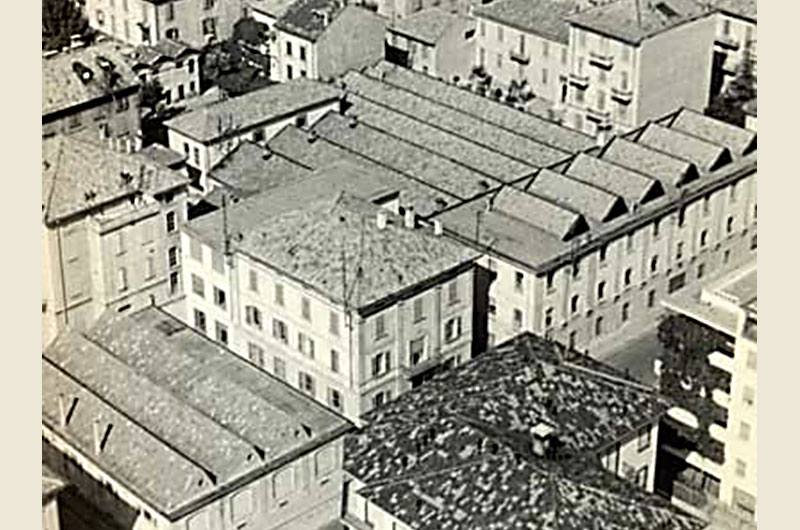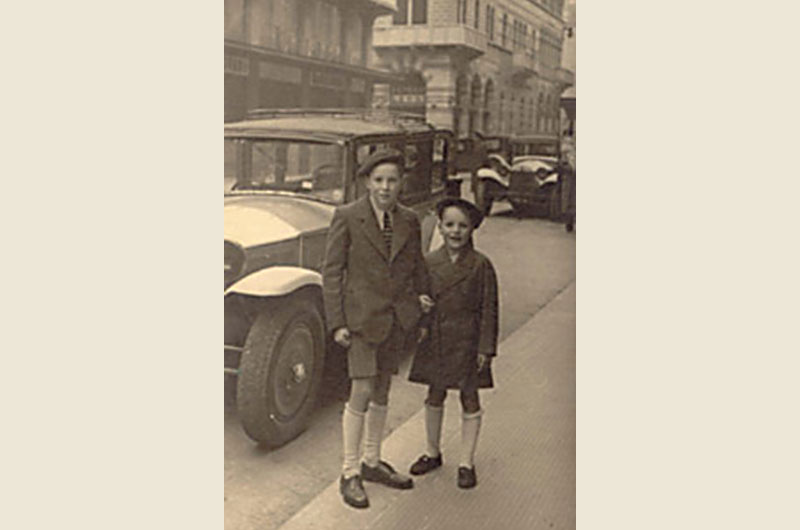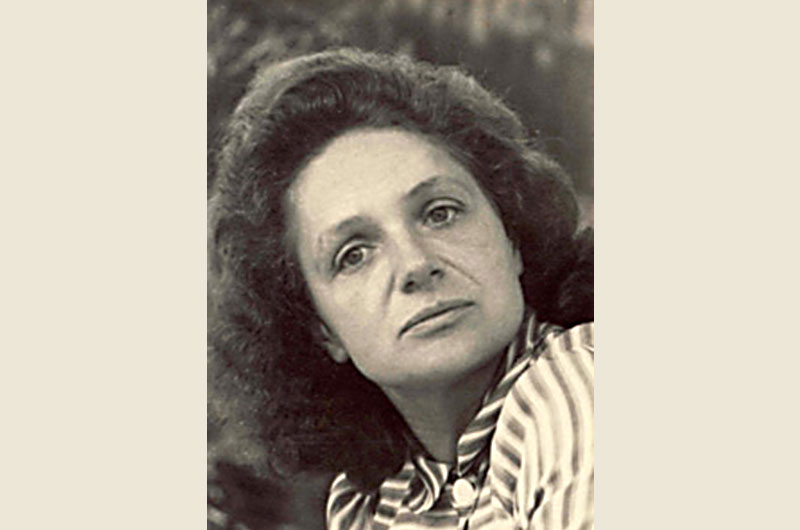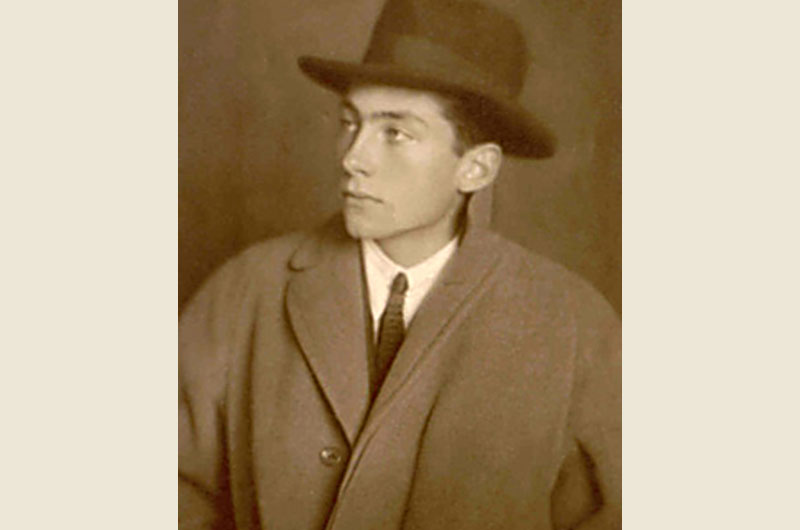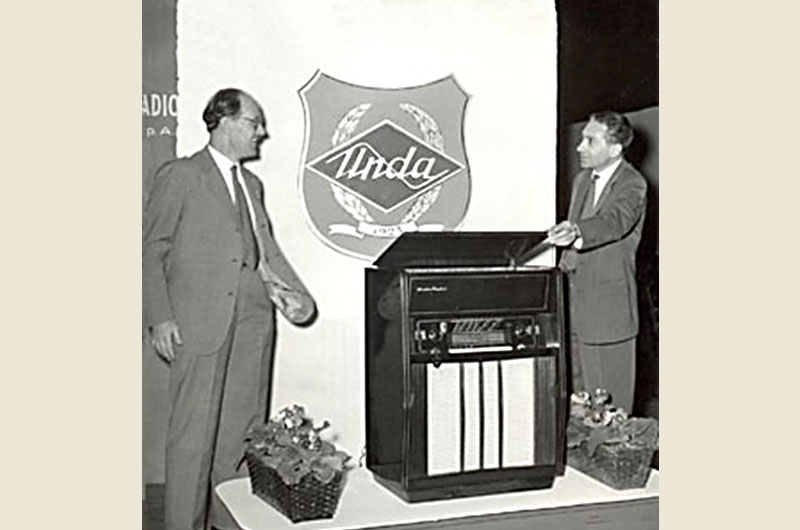Why in Dobbiaco?
by Lisa Glauber
Elise Rutter was born in 1834 in Dobbiaco, a little agricultural village at the foot of the Nove Cime in the Dolomites. Her father, Johann Georg Rutter was a dyer by profession. After his premature death, Elise, who was only 6 years old, was sent to live in Ljubljana (Slovenia) with her wealthy relatives. We don’t know much about her youth, but we can surmise that Elise, in this large city which was part of the Austro-Hungarian Empire, spent uneventful and happy years.
In Ljubljana Elise met Karl Polz, Captain First Class in the Infantry Regiment of Archduke Franz Karl, and married him in 1857. Karl Polz was born in 1819 in Slovenia, son of Laurentius Polz, manager of the agricultural properties of Count Hochenwart, in whose residence Karl and his 7 siblings were born. Already in high school Karl embraced a military career which he pursued with passion and skill to his death in 1885. Either as part of, or as commander of Habsburg Armies, Karl participated in the major war theatres of the XIX century.
He took part in the Italian campaign of 1848-1849 fighting in Lombardy and at the doors of Milan with Field Marshall Radetzky; the Italian campaigns of 1859 and 1866, and the 1878 Bosnia-Herzegovina war where he earned the title of ‘Conqueror of Sarajevo’. During peace time his job was to train the armies of Emperor Kaiser Franz Joseph, which required extensive travels throughout the Austro-Hungarian Empire. During his career he garnered many honours and medals, and in 1881 he became Major General.
Elise and Karl had 8 children, of whom 3 died before they were ten, and 2 died as young adults. Karl often expressed his sorrow for not being able to be with his beloved family for longer periods because of his military duties. Of the surviving children we are mostly interested in Ghisa, born in Ljubljana in 1869, as she was our grandmother.
Ghisa buried her father in 1885 at Grosswardain, today Oradea in Rumania, on her 16th birthday. Elise, now a widow, decided to return to Vienna, where their youngest daughter Elsa was born, to give Ghisa a chance to pursue her promising singing career, while younger sister Elsa pursued acting. She became an admired actress. In 1893 Ghisa had her singing debut in Prague, where she was immediately engaged by famed theatre director Angelo Neumann. And so the family, that is Elise, Ghisa and Elsa moved to Prague.
At the height of her career as soprano Ghisa met Moritz Glauber, a Jewish banker from Prague, music lover and patron of the arts. Their marriage and the birth of their only child Max in 1902, marked the end of her career. She dedicated her life to her little son who, at the young age of eight in 1910, lost his father.
Ghisa remained in Prague for some in years enjoying her comfortable life in music and theatre circles, but before the beginning of the First World War she decided to move to Bolzano. This choice, in view of the tragic events of the Second World War, was particularly wise: all Moritz’s relatives in Prague will perish in the Holocaust.
In 1913 Ghisa chose Dobbiaco, the birthplace of her mother, to build her vacation home. During the school year she and Max lived in Bolzano, where Max attended high school. A committed and serious student, he met his future bride Trude, also a high school student, during those difficult years of the First World War.
Trude Walther von Herbstenburg was born on January 13, 1903. She was the only girl in her high school class in Bolzano. Her father was a congressman in Rome during the early twenties and is remembered for his famous speech in Parliament in favour of the Alto Adige region which had just become Italian. The Herbstenburg belonged to an ancient noble family of Dobbiaco, where a XVII century ancestor lived in the castle which to this day bears his name.
Max began his studies in philosophy and physics at the University of Munich in 1922, but as early as 1923 Hitler began stirring the souls of young Germans, marking the beginning of the first racial discriminations, for which Max had to suffer already during high school in Bolzano. He therefore decided to follow another direction.
With his basic physics knowledge, he sensed early on the potential and the importance of experiments being conducted all over Europe of radio broadcasts and radio receptions. He became a pioneer of the new inventions and at barely 23, in 1925, he founded in Dobbiaco, where he now lived permanently with his mother and other family members, the radio factory Unda Radio. He will marry his beloved Trude in 1926.
From the very beginning the firm Th. Mohwinckel of Milano was in charge of the sales organization for this newly-born industry, and Theddy Mohwinckel, who just turned twenty, was in charge. The two families became friends in addition to being business partners, a friendship which persists to this day. The following years are marked by intense activity, innovations and satisfactions. The number of the factory workers is constantly on the rise. They come from the whole Pusteria Valley for a steady, year-round job. Innovative radio sets are built and the reputation of the company spreads because of its technical advances and quality. The activity at the Dobbiaco factory brings many illustrious visitors. The small village for the first time in its history enjoys a period of economic boom. Yet, inside the factory, there were groups of young hot-blooded fascism sympathizers, who posed a personal danger to Max.
With the birth of 3 children in 1928, 1933 and 1935, Max’s family was growing as well. Those were particularly happy years in that little village, in spite of the
worldwide financial crisis due to the stock market crash and some radio models not well received by the public. To overcome the financial difficulties, Max sells his father’s house in Prague and takes in new partners, the Amonn brothers of Bolzano. But the decisive blow which destroyed this peaceful existence and changed the destinies of the family and of the factory, came with Italian-German agreements signed on June 23, 1939 with respect to the populations of Alto Adige. As a result the family loses its residency and property ownership rights. Max sold his villa to Ing. Castellani, the television pioneer. In addition, the majority of the workers had opted for emigration to Germany. The only logical alternative was to find a new home for the family and the factory. The city of Como was chosen for its vicinity of industrial Milano and of safe Switzerland. It is here that Unda Radio and the family find their new home. On December 14, 1940, Unda Radio inaugurates its new business premises in Via Mentana 20.
By now the war was raging. The beginnings of the young industry were difficult because of the unavailability of specialized labour and the difficulties of procuring raw materials due to the embargo imposed upon Italy by allied countries. The move to Como has been traumatic for the family as well. Only Max knew some Italian, the children had to attend new schools, but who suffered most was Max’s elderly mother. She had a hard time accepting the new situation. The hardships and privations of the war were being felt by all Italians, but were even harder on the family who had to start all over in a completely new and unfamiliar environment.
The greatest hardship however was caused by the political climate: Max’s ethnic origins were known at the local Nazi Headquarters, where a file on him was kept. As manager of a factory, he could not disappear into thin air. The nature of the products manufactured for transmission and reception was a magnet for the Fascist Party officials and German officers, who visited often.
Max walked a thin line careful not to put his family in danger. He had a secret hiding place on the lake and for precaution sent his two sons to a boarding school in the country side. He had to go to court to defend his position that he employed only skilled and essential labour, so none of his employees had to go to war.
The immediate post war period was even more dangerous for the family. The problem of Jewish origins which had previously caused difficulties and fear, did not cause apprehension anymore. Now Max was threatened by the new bosses, the partisans, because of the German family name, but through the intervention of an employee, it seems, he was not deported. The beautiful villa in which the family lived was confiscated and they were forced to move again. Theddy Mohwinckel was sought by the partisans, who, not having found him at home, took his brother in his stead and shot him.
The hard post-war times gave way once again to serene days for the family as well as for the company. The children, in addition to school, were engaged in music and sports. On Sundays the whole family went on hikes in the mountains surrounding Como or they went boating and swimming in the lake. Winter and summer holidays were once again spent in Dobbiaco. The home, sold at the time of the forced expulsion from Alto Adige returned to the family for default in pay-ments. Unfortunately grandmother Ghisa, who died in 1944, did not have the joy of returning to the home she built and cared for with passion.
With the arrival of television, Unda Radio had to face another radical change. Because of the unique geographical location of the city of Como, surrounded by mountains, the first experiments of this new means of communication were made at about 2,200 ft. at Hotel Europa in Brunate. Ironically this invention, television, caused the demise of Unda Radio. Large investments were necessary, which the company could not afford, for the new project. So it came about that in 1958 Unda Radio had to shut down. Well into the eighties Unda loudspeakers could still be found at the ferryboat wharfs.
Max and Trude’s children had begun their own lives: Enrico, the eldest, became an electronics engineer. His destiny, after a training period in Germany, would have been Unda Radio. Hans, an economist, worked for many years at Olivetti in Frankfurt and Lisa, married in New York, completed her studies in that city.
Max, not yet sixty, started a new company in Tavernerio (Como), by the name of Industria Elettronica Comense SpA. Unfortunately Max did not enjoy for long his new industrial success, because he died suddenly of a heart attack in 1966. He was only 64 years old. Trude, after the death of her husband, moved to Cernobbio, where she lived until she was 90. She then moved to her home town, Bolzano, where she died at 99 in 2001.
Max is buried in the cemetery at Dobbiaco, the village where his grand-mother Elise Rutter was born in 1834.

